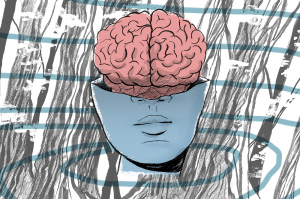
Schizophrenia can be treated, but not completely cured. Existing methods of treating schizophrenia help to get rid of the manifestations of the disease or reduce them; today, many patients with schizophrenia can lead a normal life, find a job, start a family. But they must constantly take antipsychotic drugs prescribed by a doctor. Sometimes a patient has to try several before finding a remedy that suits him. Drugs used to treat schizophrenia can cause side effects such as blurred vision, restlessness, drowsiness, dizziness, rash, and others. Patients may gain weight. But you can’t abruptly stop taking medicines for schizophrenia, you need to tell the doctor about all the side effects, he will select another drug. Psychotherapy, group therapy, rehabilitation and educational programs, and social skills training are also used in the treatment of schizophrenia.
drugs prescribed by a doctor. Sometimes a patient has to try several before finding a remedy that suits him. Drugs used to treat schizophrenia can cause side effects such as blurred vision, restlessness, drowsiness, dizziness, rash, and others. Patients may gain weight. But you can’t abruptly stop taking medicines for schizophrenia, you need to tell the doctor about all the side effects, he will select another drug. Psychotherapy, group therapy, rehabilitation and educational programs, and social skills training are also used in the treatment of schizophrenia.
Medications for schizophrenia belong to the group of antipsychotics. They help eliminate or reduce hallucinations, delusions, perceptual disturbances, and other psychotic symptoms, and reduce the risk of an exacerbation. Antipsychotics can be taken orally (by mouth) or injected (by injection). Currently, there are long-acting drugs that can be administered biweekly or monthly. Medications to treat schizophrenia can cause side effects such as blurred vision, restlessness, dizziness, heart palpitations, rashes, and others. Patients may gain weight. But only a doctor can replace the cure for schizophrenia.
Is schizophrenia a disability?
Schizophrenia https://en.wikipedia.org/wiki/Schizophrenia may be an indication for the assignment of a disability, but this decision is made by specialists of the medical and social expert commission. Studies show that 70 percent of people with schizophrenia in the United States would like to get a job on a general basis, but less than 15 percent of patients succeed. By working and earning, people with schizophrenia can feel like useful members of society, in addition, teamwork improves social skills, while self-isolation at home worsens negative symptoms. Working patients are advised to avoid stress and overwork. In the UK, they are entitled to shorter working hours and flexible working hours. If the patient is not working, he is entitled to financial support.